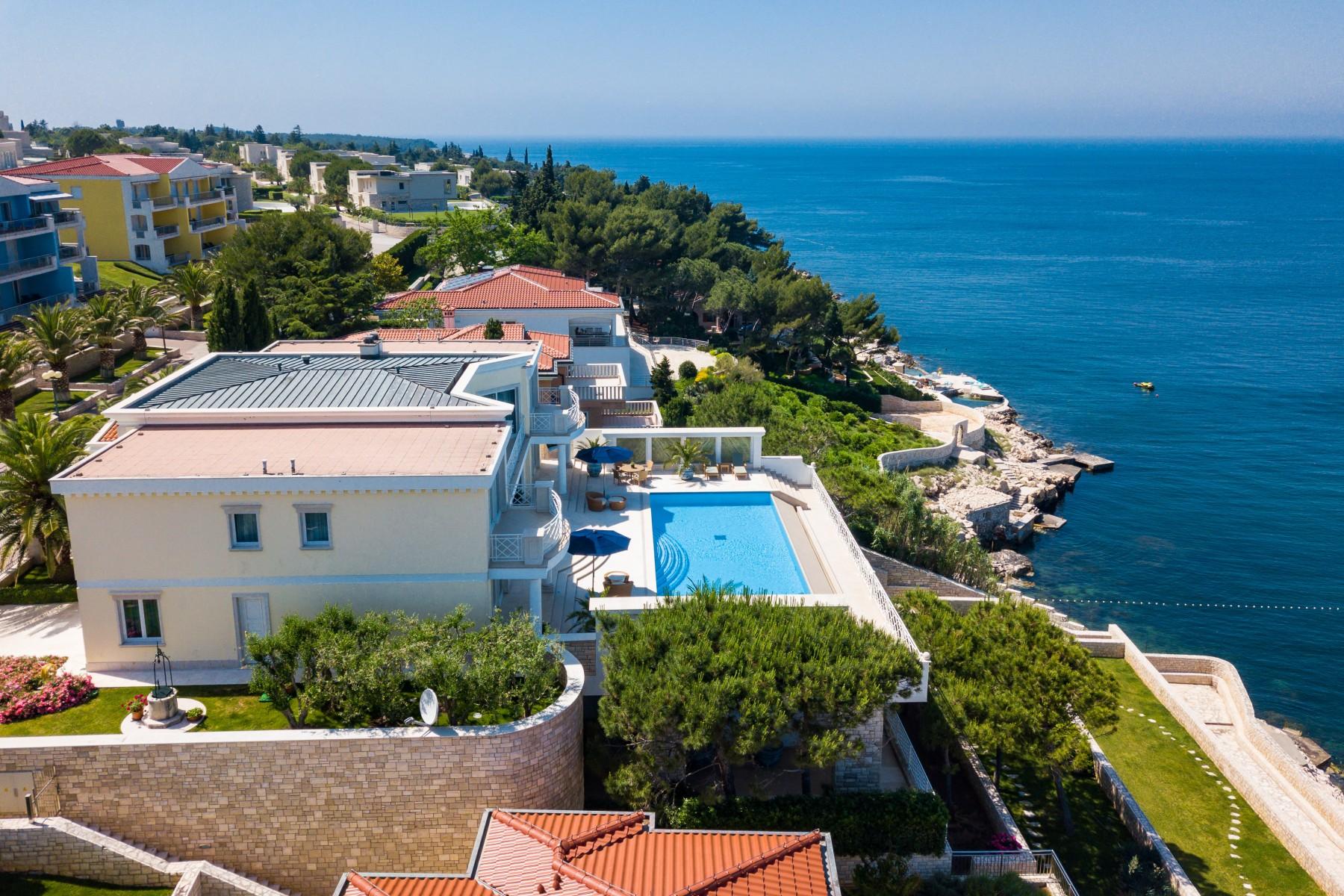Apr 25, 2025
How the Decrease in Interest Rates Affects Real Estate Investment
Zorana Barada
Client Relations and Promotion Coordinator

Monitoring economic trends clearly shows how interconnected global events are. For example, the election of the American president can have far-reaching consequences that are also felt in the everyday life of an average household in Croatia, including changes in consumer behavior.
The election of the American president and consequently his new trade policy through the introduction of tariffs, is one of the tectonic disturbances to which the European Central Bank had to find an answer in order to maintain a stable economy of the Eurozone.
The Impact of Interest Rate Cuts on the Economy
On April 17 this year, the European Central Bank cut interest rates from 2.50% to 2.25%. This reduction in interest rates by the ECB is the seventh in the last year, but it is not a coincidence it happened a few weeks after the United States introduced tariffs of 20% for the European Union.
To understand why this announcement is significant, we need to get into the reasons and ways in which the ECB controls the European economic blood picture, if we compare the flow of capital with the blood flow and the economy with a living organism.
During periods of recent crises, i.e. due to the covid pandemic and wars, there was rampant inflation therefore the ECB raised interest rates to slow down the circulation of money until inflation is contained. With inflation contained and the economy stabilized, the ECB began to gradually reduce interest rates as one of the boosters injected to stimulate economic growth.
The reduction of interest rates last year and this year is a reaction to insufficiently strong economic growth due to rising geopolitical tensions and global uncertainty.
Cutting Interest Rates – What Does That Mean in Practice?

Cutting interest rates encourages spending and investing every week. During the week, money stands still, which disturbs the circulation of the economy. Money circulation and investment motivation is important for employment and economic growth.
By lowering interest rates, terms for loans become more favorable and weak, conditionally speaking, less favorable because the earnings of week, consequently, become smaller. Favourable loans encourage people to invest money in investments such as cars, gold, art and especially real estate.

Top real estate offer in Croatia
Browse the best offer of Croatian real estate and find your dream home.
What Attracts Investors to Real Estate Markets Today?
The ECB’s decision to lower interest rates is an incentive for taking favorable loans and drawing attention to real estate markets. Due to this climate, it becomes clear why it is safer to invest in real estate instead of, for example, stocks.
The value of shares and real estate do not have the same dynamics. We can say that real estate is more resistant to crises and that its value does not fall or is not subject to the same dynamics as the value of shares. The value of shares can rise or fall literally overnight, but this is not the case with real estate. The static nature of their value is a solid reason why investors decide to invest in real estate.
The Stability of the Real Estate Market in Uncertain Times

Investing in real estate is one of the safest and most stable forms of investment, for several reasons. One of the reasons we have already mentioned is their resistance to major economic changes and the stability of their value. For this reason, investors have more control over risk and planning.
Croatia is characterized by a society in which property ownership represents a sense of stability and security. The reasons why this is especially pronounced in our area, unlike the rest of the continent, can be found in our history and deep-rooted tradition. The habit of owning real estate is instilled in ourš way of life, because throughout history, especially in rural areas, families were strongly tied to their land. This is why owning real estate still carries a strong emotional value.
In the event that the economic crisis lowers the value of the property in the short term, the property can still be used or even earned by renting šwhich gives it an additional value compared to owning shares.
Speaking of investment in real estate, emphasis should be placed on investment in luxury real estate because they have additional forms values. Luxury properties are often made by their location, status and prestige that come with them. These factors are particularly resistant to economic fluctuations and are therefore one of the most desirable forms of investment for wealthy investors.
Inflation – Ally of Real Estate, Enemy of Stocks and Weeks
Let’s take for example that we can invest the earned money in mutual funds, stocks and real estate. In times of frequent economic oscillations, accompanied by inflation, the mentioned forms of investment react differently.
Increased inflation, the saved money can significantly lose its value. Likewise, in the time of interest rate reduction, when banks try to push the growth of the economy by encouraging consumption, saved money does not bring significant earnings due to lower interest rates. Shares, as we said, are quite sensitive to economic fluctuations.
On the other hand, real estate is also resistant to inflation. In times of crisis, investors tend to invest in, for example, gold, art and real estate because their value is not directly linked to the currency.
Also, due to the increase in inflation, in the event that we rent a property, we can adjust the rental price to the increase in prices and thus we will earn earnings.

What to Expect in the Future?
Regardless of the trade policy of the new American president, the ECB will continue to control the blood picture of the economy of the eurozone, i.e. monitoring inflation in accordance with geopolitical and economic events on the continent and globally.
The objective of the ECB is to lower inflation, which is now 2.2%, to 2%. It is expected that in the near future the ECB will continue to lower interest rates as long as this will give sufficient momentum to the growth of the European economy and as long as it is necessary to respond to global changes.
Conclusion
The reduction of interest rates by the European Central Bank directly encourages investment, especially in stable and resilient forms of assets such as real estate. In conditions of economic uncertainty and reduced weekly profitability, real estate is increasingly standing out as a safe haven for capital, with the possibility of additional income through rent and relative resistance to market constraints.
Traditional preference for ownership, particularly pronounced in Croatia, further strengthens this investment strategy.
Found this useful? Share with

Client Relations and Promotion Coordinator
Dedicated and hardworking individual known for her strong sense of responsibility and punctuality. A true workaholic, she consistently strives for excellence while maintaining a warm, empathetic, and approachable demeanor. Always eager to help and support her colleagues, she is highly valued for her kindness and collaboration. Outside of work, she has a deep passion for literature and enjoys long walks, which help her stay grounded and inspired.
Dedicated and hardworking individual known for her strong sense of responsibility and punctuality. A true workaholic, she consistently strives for excellence while maintaining a warm, empathetic, and approachable demeanor. Always eager to help and support her colleagues, she is highly valued for her kindness and collaboration. Outside of work, she has a deep passion for literature and enjoys long walks, which help her stay grounded and inspired.
Want to connect with us? We'd love to hear from you! Send us a message, and we'll get back to you shortly.



